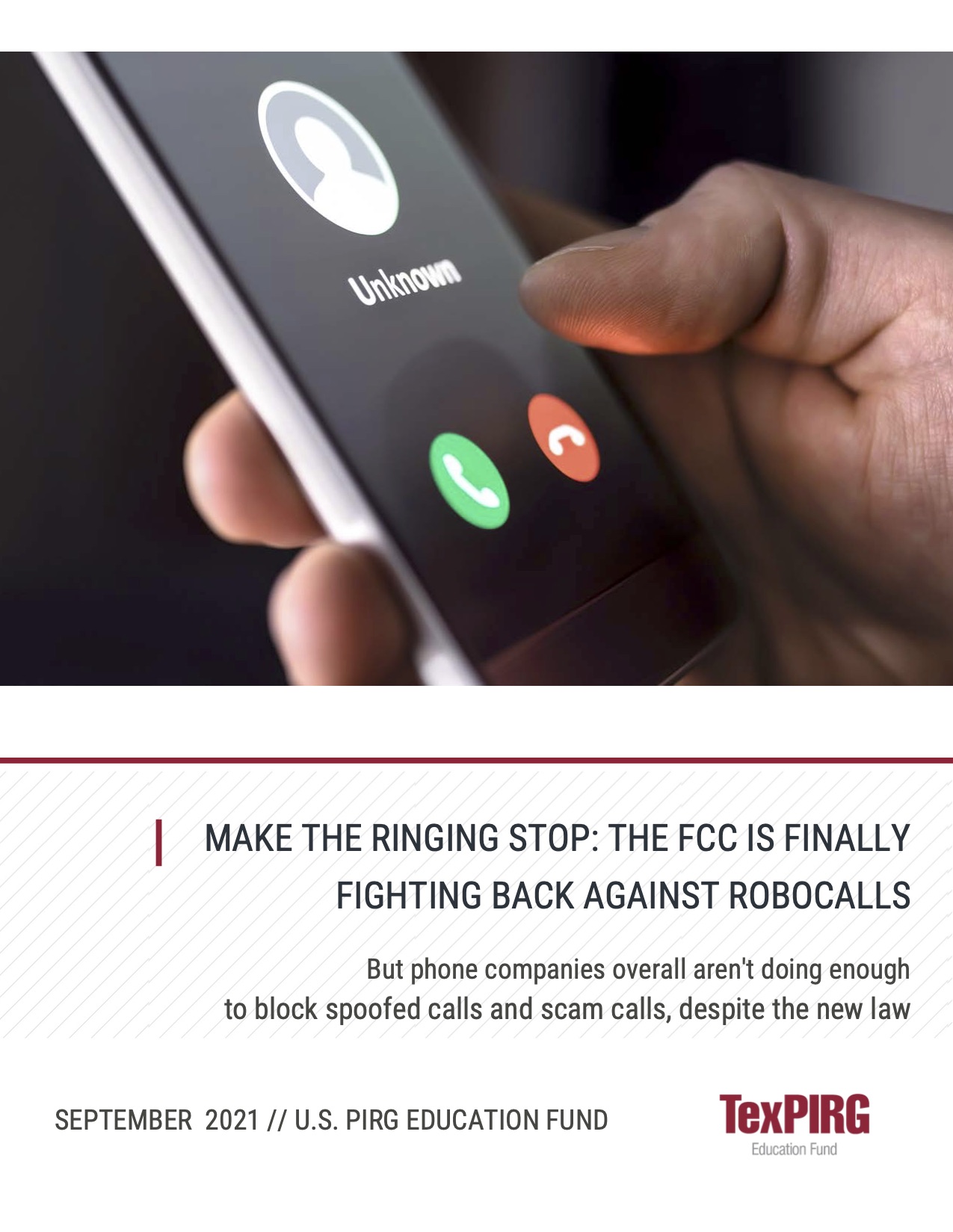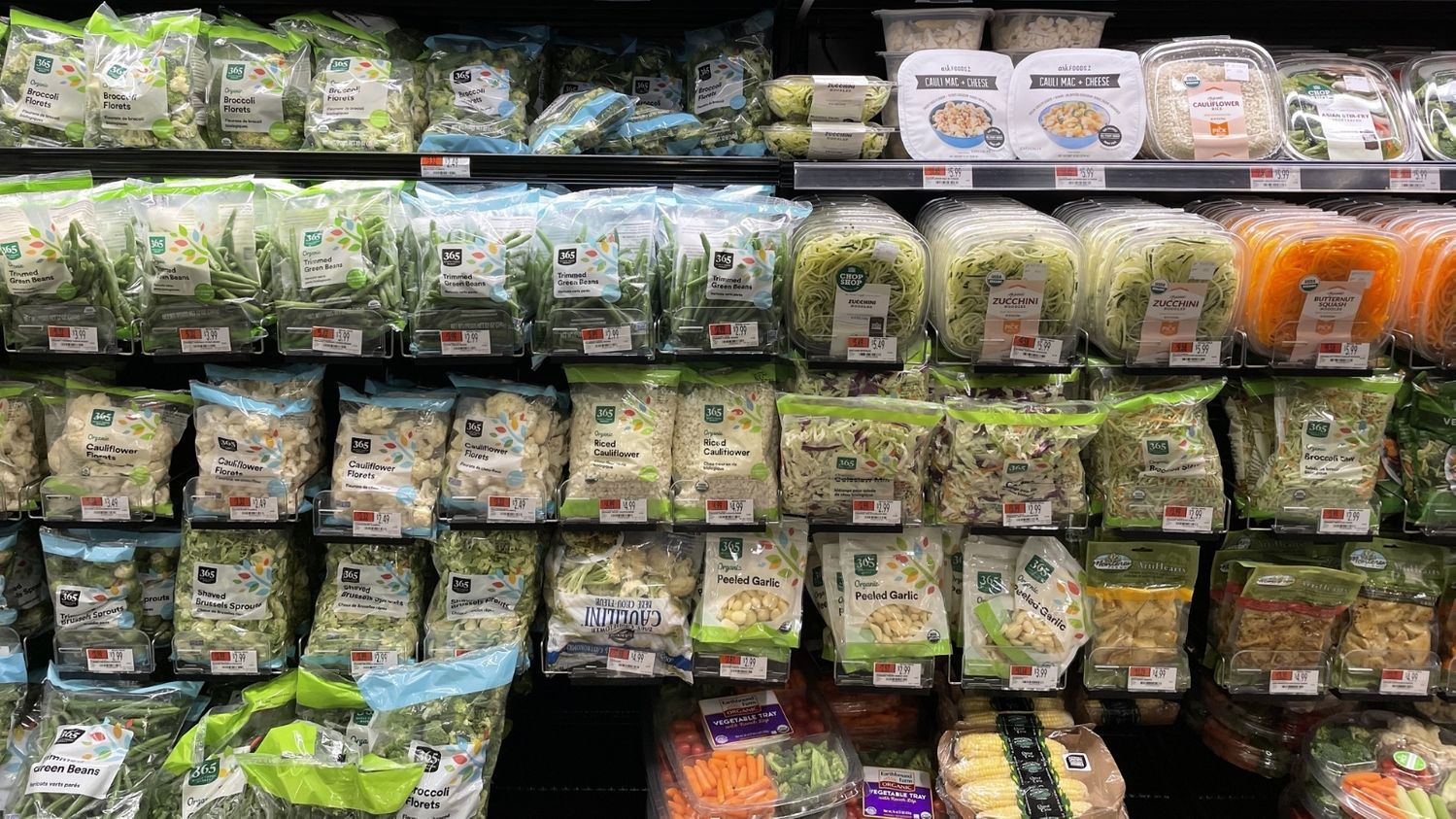
Make the ringing stop: the FCC is finally fighting back against robocalls
But phone companies aren't doing enough to block spoofed calls and spam calls, despite new law
A looming deadline should finally force all U.S. phone companies to take stopping robocalls seriously. However, only one-third of the largest mobile and home phone providers nationwide -- and a more disappointing percentage of smaller telecommunications companies -- have installed caller ID verification aimed at squashing illegal robocalls, even though most of those businesses were required to do so by June. The stakes get higher Sept. 28, when phone providers are required to block calls from companies that haven’t at least reported their status to the FCC.

Downloads
TexPIRG Education Fund
Our report is looking at 49 of the largest voice providers nationwide, with a breakdown of who operates in individual states. Who’s complying with the federal law and who’s not?
Key finding: Research by PIRG Education Fund shows that among 49 of the largest phone companies nationwide, only a third have reported to the Federal Communications Commission (FCC) that they have completely implemented anti-robocall technology. Another third have partially implemented the technology, according to the FCC. The remaining third have told the FCC they haven’t adopted the industry standard technology at all, but they’re using their own methods to reduce robocalls, or they have not reported their status to the FCC’s database, as required by law.
What does this mean? It means the industry isn’t doing nearly as much as hoped to fight the crime that for years has caused so much heartache and aggravation among consumers nationwide.
Despite that, scam calls nationwide dropped by 29 percent from June to August, according to YouMail, a leading robocall filtering company.
In addition, we’ve surveyed the largest providers to see who is going above what’s mandatory by:
-
Blocking known scam calls.
-
Providing an on-screen warning that a call may be a scam.
-
Providing on-screen number validation or verification.
-
Allowing customers to block all calls with no caller ID.
-
Allowing people to create white lists.
-
Informing customers what services are available to reduce unwanted calls.
Some of these services weren’t allowed by the FCC until the last few years.
Topics
Find Out More


“Certified natural gas” is not a source of clean energy

Why privacy matters – even if you’ve got nothing to hide

